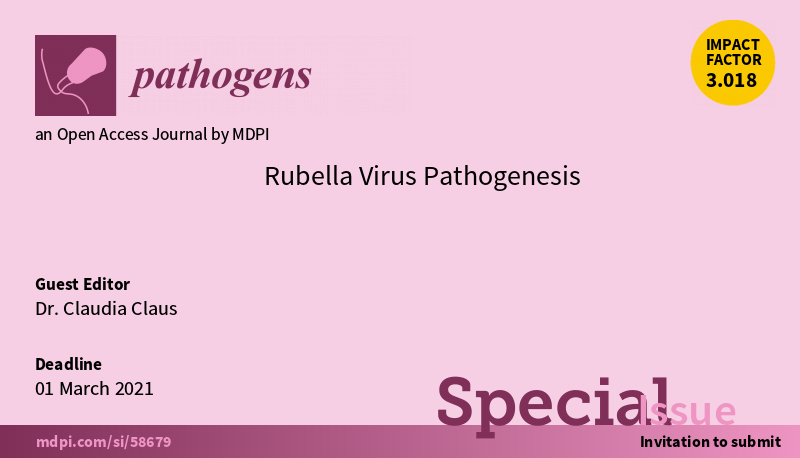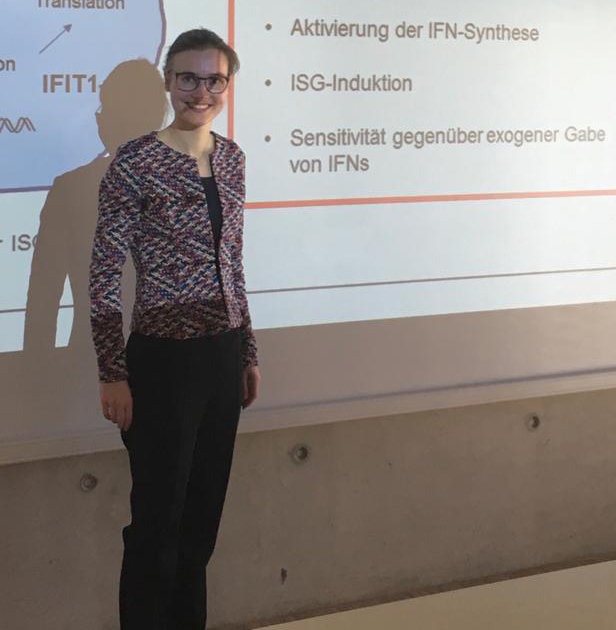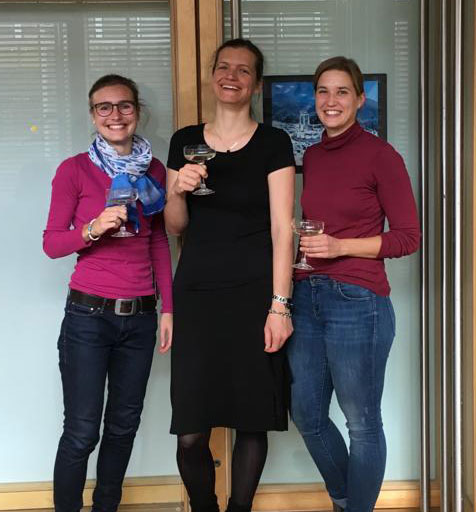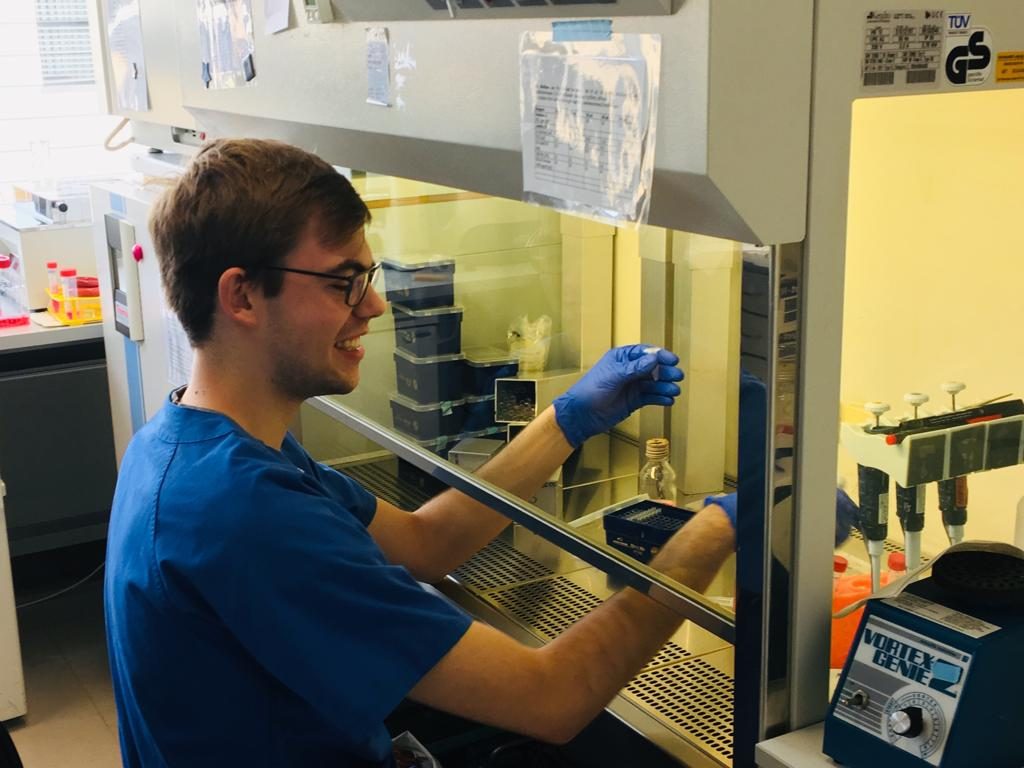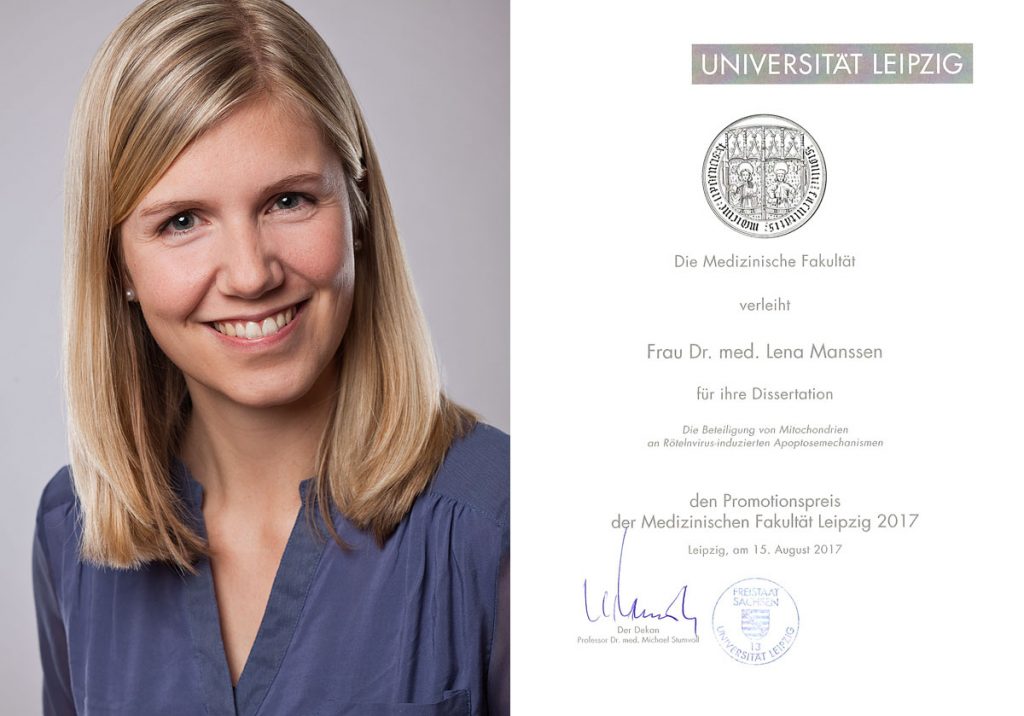Professor Claudia Claus
Rubella virus and novel concepts for congenital rubella embryopathy
As a biologist working in the field of virology my research focus is set on the interaction of rubella virus with its respective host cell. This efficient viral teratogen is a strictly human-specific pathogen. The cellular mechanisms leading to the impairment of human development are still unknown. As illustrated hereafter rubella virus can be teratogenic from early pregnancy on. How it could get access to the developing embryo even at these early developmental stages remains an open question.
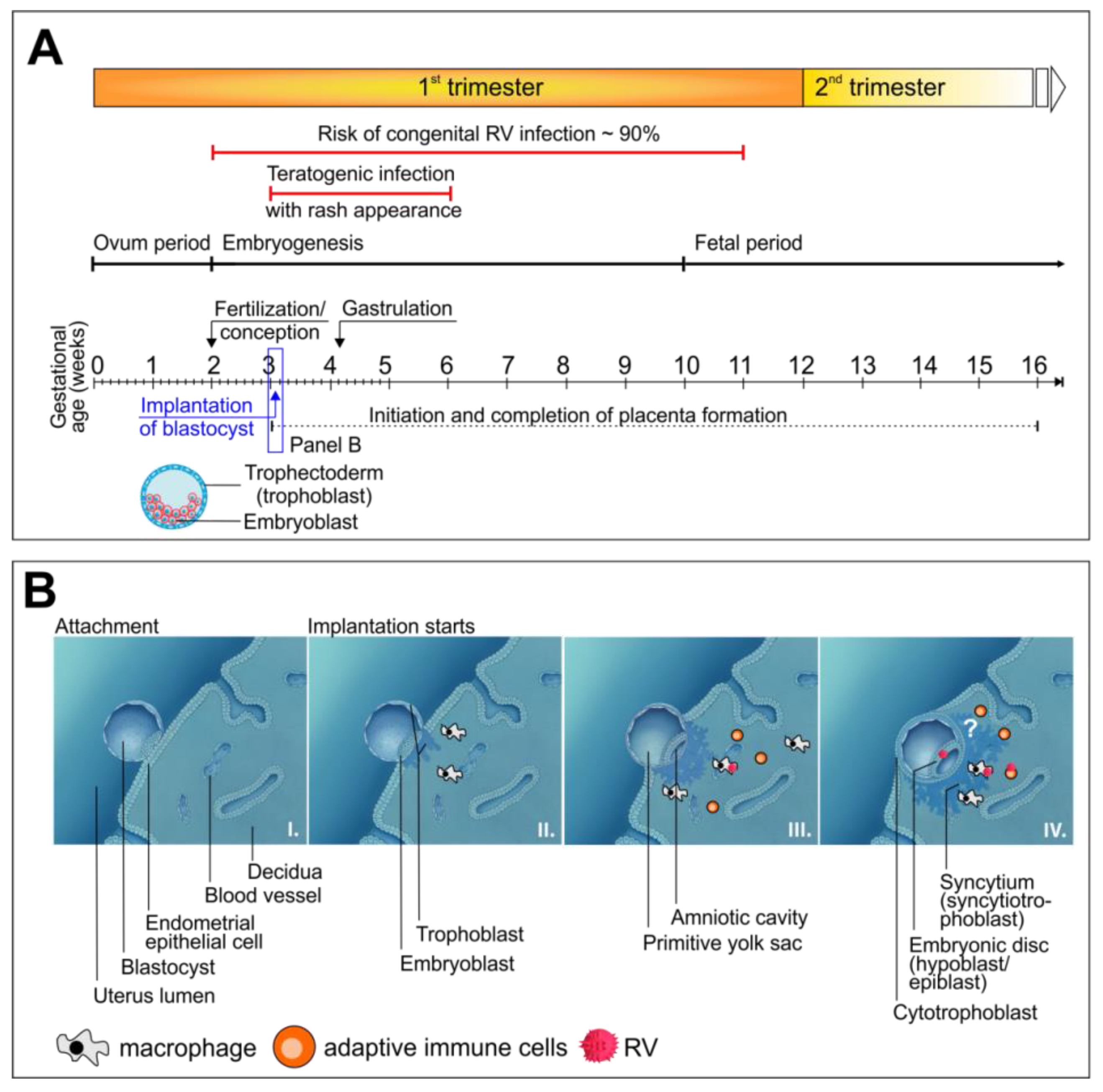
During my study of Biological Sciences at the University of Halle-Wittenberg a lecture on viruses as pirates of a cell initiated my interest in virology. From 1999 to 2000 I was enroled at the Queen’s University of Belfast as a non-graduating student. There I attended classes in general and specialiced virology. In 2006, during my doctoral thesis, I worked as a research scholar in the laboratory of Prof. Teryl Frey at Georgia State University in Atlanta. Hereafter more recent points of the timeline of my research work are summarized.

